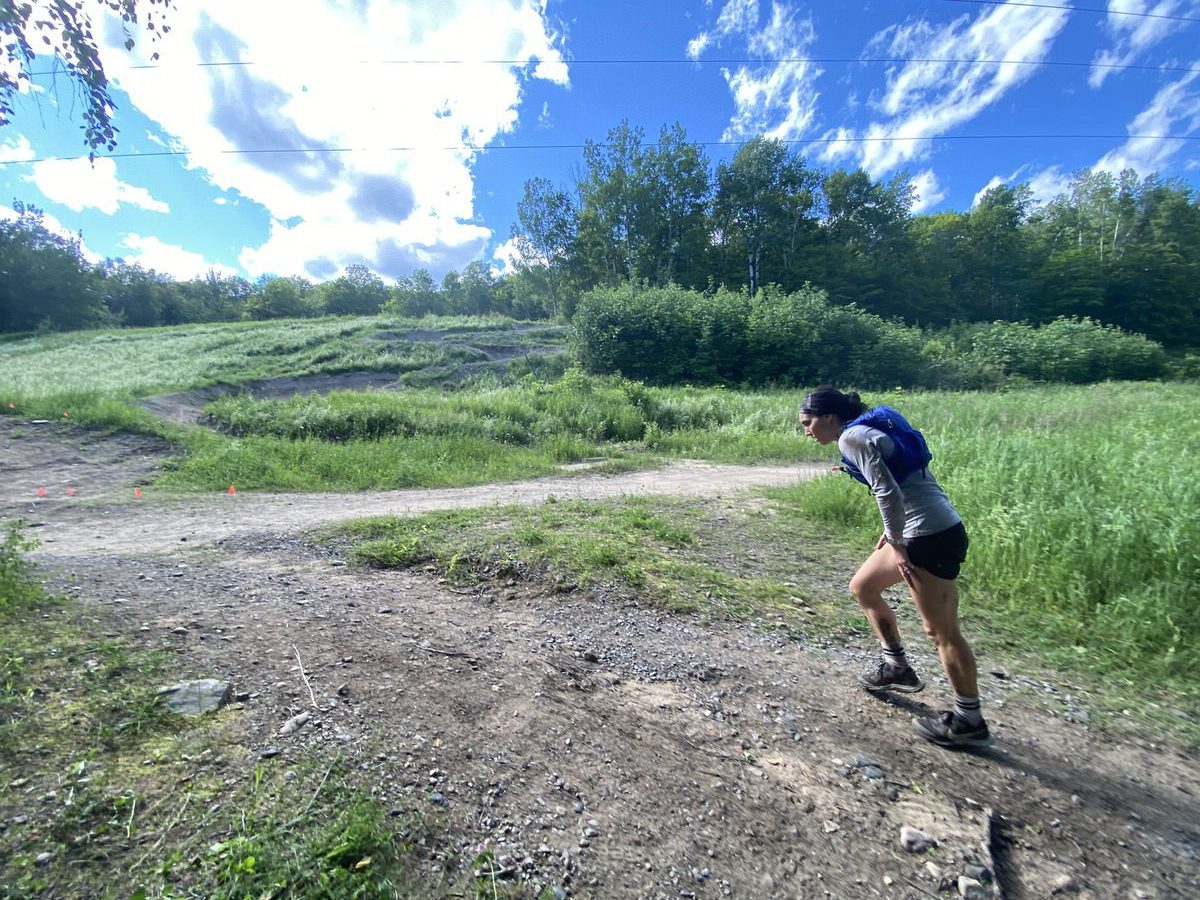When I raced my fist 100-miler back in February, I did so with the thought that after racing 100 miles, I would be able to effectively race shorter distances in a more aggressive, confident way. And while that was proven to be true in my most recent 80KM race, there was an unintended, less optimal side effect: Racing 100 miles made me feel so much more blasé about the 80KM—and that led to some negative consequences.
Looking back, now that it’s been two weeks, I’ve been wondering why I haven’t been feeling super speedy, why I didn’t bounce back. After all, it was *only* 50 miles, not 100. It was *only* 11.5 hours, not 24. But here’s the thing. Actually, here’s the three things:
1: 50 miles is still… 50 freaking miles. It’s still 11.5 hours. That is still objectively a shit-load of running. (And I’m not even mentioning the terrain itself or the vert.) It is a long distance that deserves respect. I think (more on this in a minute) that it’s really easy to forget that 50 miles is a lot—this race takes as long as an Ironman—when you’ve done a longer race. But that wasn’t the point when I signed up for the 100. The point was to feel confident, not blasé.
2: I went really hard in this race. I went in with probably too much fatigue—not too much mileage or training, just too much fatigue from the week with everything I had planned plus a couple of things that didn’t go to plan—and even as I was doing well in the race, I wasn’t feeling fantastic about it. My gut was off, my body wasn’t psyched, and I was just ready to be done from mile #1. The course was gorgeous—shoutout to Quebec Mega Trail—but it was HARD. And I pushed myself to stay in the game.
3: I kicked the crap out of my big toe, and while I’m still not positive it’s broken, it’s still not OK. I’m back to running relatively pain-free, but I haven’t ever had an acute injury that took a while to go away, and I don’t think I respected that enough either. I just got annoyed.
So, what is the lesson here? It’s that every race has the ability to be really freaking hard, to totally tap you out physically/mentally/emotionally. It might be a local 5K that buries you, it might be a week-long stage race. But every race can have a major impact on you, and I think if you’re planning to give a race your all, you need to be planning for that before, during and after the actual effort.
For me, the reason I can tell that this is something that really matters and it’s something I need to work on if I want to continue improving and enjoying racing in the future—and that it’s based on mindset, not an excuse for why a race didn’t go well—is because the race itself did go well. While I think a bad race is good to reflect on when it comes to how we can improve, there’s something to be said for really digging into why a good race didn’t feel quite right. And for me, that means a reset and reminder that every distance demands respect if you’re planning to race it to the best of your abilities, to go as deep as you can and have the best race for you on that day. It’s not dissimilar to our oft-cited ‘race if you’re going to race’ concept. I was racing—but I wasn’t as mentally in the game as I should have been. That’s a mistake I won’t make again.
Before you go, check out our book, Becoming A Consummate Athlete, right here:






